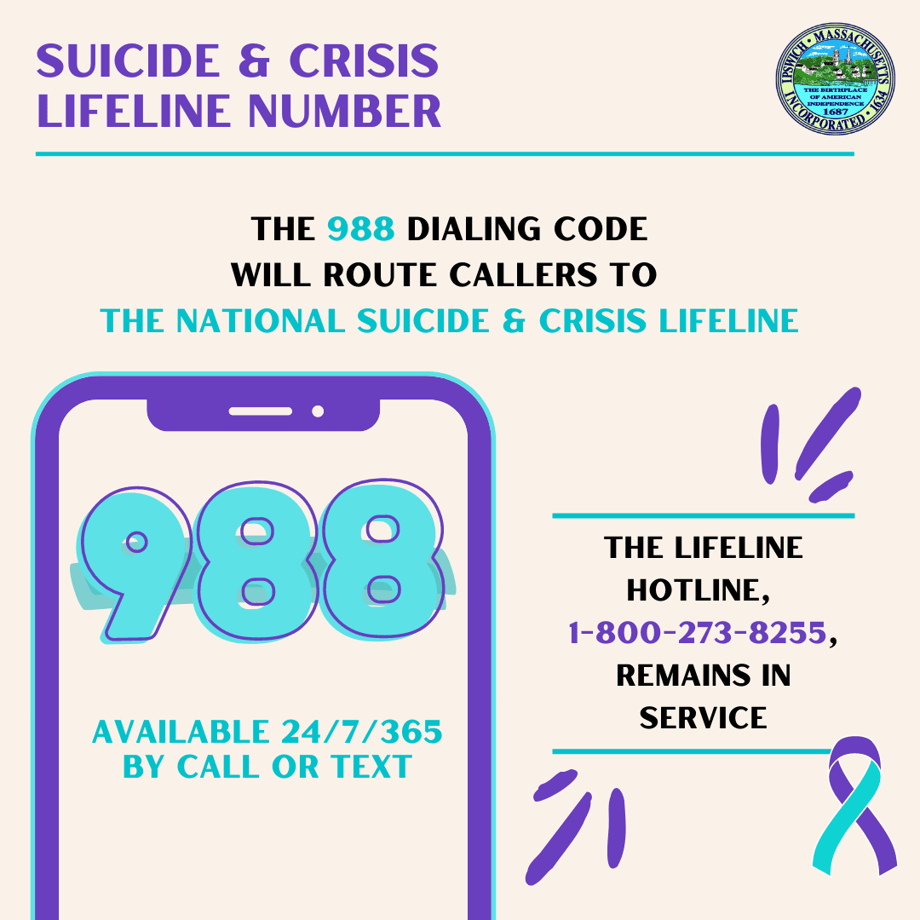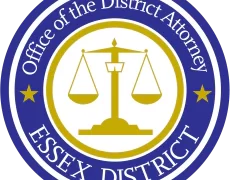IPSWICH – Public Health Director Colleen Fermon and the Ipswich Public Health Department would like to emphasize the importance of mental health awareness and share suicide prevention resources as part of National Suicide Prevention Month.
National Suicide Prevention Month, observed in September, aims to unite community members in advocating for and promoting suicide prevention awareness.
According to the CDC and the National Institute of Mental Health (NIMH), nearly 46,000 lives were lost to suicide in 2020 alone. Some of the warning signs of suicide include:
- Increased alcohol and drug use
- Aggressive behavior
- Withdrawal from friends, family, and community
- Dramatic mood swings
- Impulsive or reckless behavior
- Collecting and saving pills or buying a weapon
- Giving away possessions
- Tying up loose ends, like organizing personal papers or paying off debts
- Saying goodbye to friends and family
Suicidal behaviors are a psychiatric emergency. If you or a loved one starts to take any of these steps, seek immediate help from a health care provider or call 988 to reach the Suicide & Crisis Lifeline.
The 988 Suicide & Crisis Lifeline, formerly known as the National Suicide Prevention Lifeline, offers 24/7 call, text, and chat access with trained crisis counselors who can help people experiencing suicide, substance use, and/or mental health crisis, or any other kind of emotional distress. Individuals can also dial 988 if they are worried about a loved one who may need crisis support.
The Ipswich Public Health Department would like to share some strategies to follow when offering support in a suicide-related crisis from the National Alliance on Mental Illness (NAMI):
- Talk openly and honestly. Don’t be afraid to ask questions like: “Do you have a plan for how you would kill yourself?”
- Remove means such as guns, knives, or stockpiled pills.
- Calmly ask simple and direct questions, like “Can I help you call your psychiatrist?”
- If there are multiple people around, have one person speak at a time.
- Express support and concern.
- Don’t argue, threaten, or raise your voice.
- Don’t debate whether suicide is right or wrong.
- If you’re nervous, try not to fidget or pace.
- Be patient.
“It is crucial for the members of our community and beyond to know that they are not alone, and there are resources available if you are experiencing a mental health crisis,” said Director Fermon. “Eradicating the stigma surrounding mental health and raising awareness is necessary in getting those that may need help the care that they need.”
Community members who are experiencing a mental health crisis are also encouraged to call 911.






